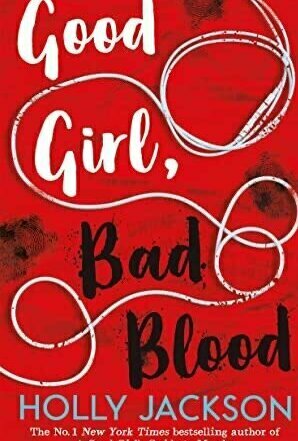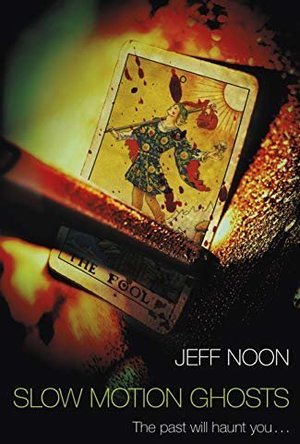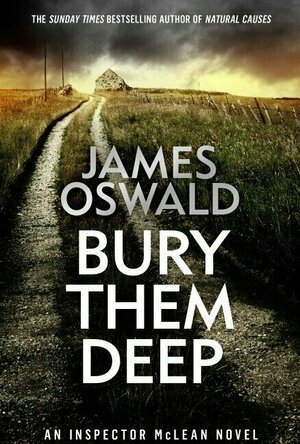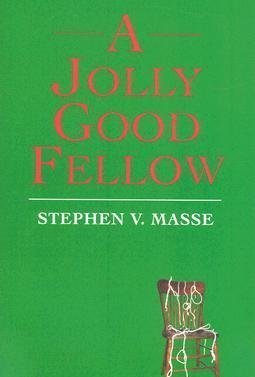Search

House Rules
Book
Set in the familiar setting of a pub, House Rules follows the story of three unlikely heroes who...
Heather Cranmer (2721 KP) created a post
Jun 10, 2021

The Cleaner: John Milton, Book 1
Book
Meet John Milton. He considers himself an artisan. A craftsman. His trade is murder. Milton is the...
crime fiction
Mark @ Carstairs Considers (2474 KP) rated Spiders from Mars in Books
May 20, 2020
Free Neptune!
It’s been four months since we last checked in with Sylvia Stryker, and in that time, she’s had one thing on her mind – freeing Neptune, her mentor and friend, from prison for a crime he sort of committed. She’s come up with the perfect plan, too. She’s going to have him declared dead so she can slip him out of prison. However, when she goes to file the paperwork, she learns that there has been a murder in the prison and Neptune is the only suspect. Her original plan out the window, she has to act fast to free him and clear his name before he disappears for good. Can she do it?
Yes, this sounds like many of the cozy mysteries I read a love, but there is a twist to it – Sylvia’s adventures all take place in space. The setting is fun and detailed, but it never takes away from the action. I got lost in Sylvia’s world very quickly, and I suspect you will as well whether you love science fiction or not. The plot is fast paced with plenty of twists and turns. Unfortunately, a few of them were a bit abrupt. The story makes sense in the end, but I wish things had been explained a bit more. The characters, some human and some alien, are all fully developed, and I was thrilled to get to spend more time with them. If you are interested in something new and different, be sure to check out this series, and if you are already a fan, you’ll be happy with Sylvia’s latest case.
Yes, this sounds like many of the cozy mysteries I read a love, but there is a twist to it – Sylvia’s adventures all take place in space. The setting is fun and detailed, but it never takes away from the action. I got lost in Sylvia’s world very quickly, and I suspect you will as well whether you love science fiction or not. The plot is fast paced with plenty of twists and turns. Unfortunately, a few of them were a bit abrupt. The story makes sense in the end, but I wish things had been explained a bit more. The characters, some human and some alien, are all fully developed, and I was thrilled to get to spend more time with them. If you are interested in something new and different, be sure to check out this series, and if you are already a fan, you’ll be happy with Sylvia’s latest case.

Camino Winds
Book
The next book in the no 1 Sunday Times bestselling Camino Island series! When Hurricane Leo...
Laura Doe (1350 KP) rated Good Girl, Bad Blood in Books
Oct 30, 2022
It’s not every time that a sequel manages to live up to the first novel but this book just made me fall in love with the characters even more.
We are back with Pip in the aftermath of the first book and she is trying to not get involved with anything that could get her in the same trouble as last time. Until her best friend’s brother, Jamie, goes missing. She tries to stay out of it, but when the police aren’t interested as he is an adult, Pip knows she can’t just sit back and hope for the best. So Pip goes back into investigative mode, but this time she has the help of Ravi, her boyfriend.
Pip has managed to document the murders of Andie Bell and Sal Singh (the previous book) on a podcast, which has a lot of followers and so she utilises this to get the news of the disappearance out there. Pip agrees with the family that she can use the investigation for a second series of her podcast.
The investigation has many twists and turns and at one point I couldn’t have told you how it was going to end. But the ending was unexpected and a character that I hadn’t anticipated was involved.
Holly Jackson’s use of different kinds of media such as photographs, articles and transcripts made the book so much more interesting to read than your usual crime fiction and I think that’s what has kept me so hooked throughout this series. Hopefully the third instalment will be just as good as this one.
We are back with Pip in the aftermath of the first book and she is trying to not get involved with anything that could get her in the same trouble as last time. Until her best friend’s brother, Jamie, goes missing. She tries to stay out of it, but when the police aren’t interested as he is an adult, Pip knows she can’t just sit back and hope for the best. So Pip goes back into investigative mode, but this time she has the help of Ravi, her boyfriend.
Pip has managed to document the murders of Andie Bell and Sal Singh (the previous book) on a podcast, which has a lot of followers and so she utilises this to get the news of the disappearance out there. Pip agrees with the family that she can use the investigation for a second series of her podcast.
The investigation has many twists and turns and at one point I couldn’t have told you how it was going to end. But the ending was unexpected and a character that I hadn’t anticipated was involved.
Holly Jackson’s use of different kinds of media such as photographs, articles and transcripts made the book so much more interesting to read than your usual crime fiction and I think that’s what has kept me so hooked throughout this series. Hopefully the third instalment will be just as good as this one.
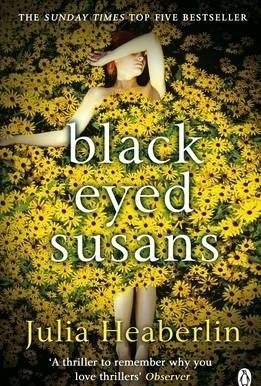
Black-Eyed Susans
Book
**THE TOP 5 SUNDAY TIMES BESTSELLER** 'My book of the year so far. Breathtakingly, heart-stoppingly...
Ross (3284 KP) rated Slow Motion Ghosts in Books
Jan 8, 2019
Some good twists (1 more)
Parallel personal story
A decent intriguing thriller set in the 80s
*** Disclosure - I received a free advance copy of this book from netgalley in return for an honest review ***
Jeff Noon is a writer of speculative fiction who has been on my reading list for some time (not through recommendation, but through finding his books in discount shops and liking the sound of them). Here he travels somewhat less speculative ground, telling the tale of a murder investigation during the aftermath of the Brixton riots of the early 80s.
The body of Brendan Clarke is found in unusual circumstances, with his face mutilated in certain odd patterns and with no apparent signs of struggle. The investigation into his murder leads the detectives to look into the earlier suicide of a Bowie-esque rock star as the links between the two are too big to ignore. There then follows an investigation into the cult-like group of misfit teenagers set up in Hastings and the cult status of King Lost, aka Lucas Bell.
There is the usual conflict within the investigative team - one jaded, opinionated DS, one DS that is hard-working and reliable and one DC that is off-screen most of the time researching things. An added element is the recent controversy surrounding DI Hobbes, as he recently shopped in his colleagues for battering a young black man in retaliation for the Brixton riots.
The main storyline is good, with enough mystery and emerging evidence to keep the interest. The link in to the past suicide of the cult figure adds an extra element. However it feels Noon went a little too far out of his way to make there a reasonable number of plausible suspects, all of whom are fairly interchangeable if I'm honest (I still can't remember which one of two characters died and which didn't).
It was interesting to read a crime book written about pre-Google times, so there really was a need for more hard work, door-knocking and evidence gathering.
There were some early incongruous events that came across as quite needlessly jarring, for example when someone says they can't remember what someone looked like, it was only a quick glimpse, can't remember anything at all and then somehow when asked about facial markings (apropos of nothing) suddenly remembered a facial tattoo. A couple of instances like that really took me out of the book.
All in all, this was a reasonably well-told crime book with a decent setting, but not exactly a ground-breaking storyline.
Jeff Noon is a writer of speculative fiction who has been on my reading list for some time (not through recommendation, but through finding his books in discount shops and liking the sound of them). Here he travels somewhat less speculative ground, telling the tale of a murder investigation during the aftermath of the Brixton riots of the early 80s.
The body of Brendan Clarke is found in unusual circumstances, with his face mutilated in certain odd patterns and with no apparent signs of struggle. The investigation into his murder leads the detectives to look into the earlier suicide of a Bowie-esque rock star as the links between the two are too big to ignore. There then follows an investigation into the cult-like group of misfit teenagers set up in Hastings and the cult status of King Lost, aka Lucas Bell.
There is the usual conflict within the investigative team - one jaded, opinionated DS, one DS that is hard-working and reliable and one DC that is off-screen most of the time researching things. An added element is the recent controversy surrounding DI Hobbes, as he recently shopped in his colleagues for battering a young black man in retaliation for the Brixton riots.
The main storyline is good, with enough mystery and emerging evidence to keep the interest. The link in to the past suicide of the cult figure adds an extra element. However it feels Noon went a little too far out of his way to make there a reasonable number of plausible suspects, all of whom are fairly interchangeable if I'm honest (I still can't remember which one of two characters died and which didn't).
It was interesting to read a crime book written about pre-Google times, so there really was a need for more hard work, door-knocking and evidence gathering.
There were some early incongruous events that came across as quite needlessly jarring, for example when someone says they can't remember what someone looked like, it was only a quick glimpse, can't remember anything at all and then somehow when asked about facial markings (apropos of nothing) suddenly remembered a facial tattoo. A couple of instances like that really took me out of the book.
All in all, this was a reasonably well-told crime book with a decent setting, but not exactly a ground-breaking storyline.
Hazel (2934 KP) rated Bury Them Deep (Inspector McLean #10) in Books
Feb 16, 2020
Engrossing
I have said this before and I will say it again ... once more, this is a treat for crime fiction, with a hint of "other", lovers the world over ... Mr Oswald has provided yet another gripping story.
DCI Tony McLean is a Detective Chief Inspector and, as such, should not be on the front line of policing however, he just can't help himself particularly when a trusted colleague, Anya Renfrew, goes missing under suspicious circumstances. Is this connected to a massive multi-agency enquiry that is just about to get underway and which is so hush-hush, that most people involved don't know the full story? Was she just unfortunate to be in the wrong place at the wrong time? Or is this connected to numerous missing persons cases that have remained unsolved for many years? When it transpires why Anya was where she was when she disappeared and her address is not where she actually lives, the mystery deepens.
It's clear that Tony is at his happiest when in the thick of things rather than sitting at his desk reading reports and directing operations and this theme is strong throughout the book. Mr Oswald is able to effortlessly portray the enthusiasm and passion Tony has for investigating and solving the apparently unsolvable crimes whilst trying to appease the top brass and having a life outside of the Police. This ability brings Tony to life and makes him believable and "human".
It's not just Tony who is brought to life, this book is littered with excellent characters ... Grumpy Bob, Norman Bates, Gav, Bobby, Professor Harriet Turner, etc., etc., etc. Ex Detective Superintendent Grace Ramsey was a particular favourite of mine who is described as "a slim, middleaged woman in a severe dark suit with a face like licking piss off a nettle" ... that one line caused a laugh-out-loud moment and conjured up an image that has stuck with me and one that captures a few people I know!! I will definitely be using that one in the future 😎
The opening chapter had me hooked and wondering what the heck it would have to do with a crime in the 21st century however, the subtly of how this was woven and developed into the story was excellent and had me thinking that it isn't something that's beyond what is possible in these times unfortunately.
This is an engrossing read and one in which I was completely drawn into and enjoyed immensely from start to finish and, once again, I am thankful to Headline and NetGalley for my copy in return for an honest and unbiased review.
DCI Tony McLean is a Detective Chief Inspector and, as such, should not be on the front line of policing however, he just can't help himself particularly when a trusted colleague, Anya Renfrew, goes missing under suspicious circumstances. Is this connected to a massive multi-agency enquiry that is just about to get underway and which is so hush-hush, that most people involved don't know the full story? Was she just unfortunate to be in the wrong place at the wrong time? Or is this connected to numerous missing persons cases that have remained unsolved for many years? When it transpires why Anya was where she was when she disappeared and her address is not where she actually lives, the mystery deepens.
It's clear that Tony is at his happiest when in the thick of things rather than sitting at his desk reading reports and directing operations and this theme is strong throughout the book. Mr Oswald is able to effortlessly portray the enthusiasm and passion Tony has for investigating and solving the apparently unsolvable crimes whilst trying to appease the top brass and having a life outside of the Police. This ability brings Tony to life and makes him believable and "human".
It's not just Tony who is brought to life, this book is littered with excellent characters ... Grumpy Bob, Norman Bates, Gav, Bobby, Professor Harriet Turner, etc., etc., etc. Ex Detective Superintendent Grace Ramsey was a particular favourite of mine who is described as "a slim, middleaged woman in a severe dark suit with a face like licking piss off a nettle" ... that one line caused a laugh-out-loud moment and conjured up an image that has stuck with me and one that captures a few people I know!! I will definitely be using that one in the future 😎
The opening chapter had me hooked and wondering what the heck it would have to do with a crime in the 21st century however, the subtly of how this was woven and developed into the story was excellent and had me thinking that it isn't something that's beyond what is possible in these times unfortunately.
This is an engrossing read and one in which I was completely drawn into and enjoyed immensely from start to finish and, once again, I am thankful to Headline and NetGalley for my copy in return for an honest and unbiased review.
Haley Mathiot (9 KP) rated A Jolly Good Fellow in Books
Apr 27, 2018
A Jolly Good Fellow by Stephen V. Masse
Genre: Fiction, Comedy, sort of Crime Fiction but not really
Rating: 3.75/5
Summary: Duncan is driving to the kids house. He has a plan—he’s going to kidnap him. But then he sees the kid hitchhiking in the snow. What better way to kidnap someone that to pick him up off the road and offer him a ride? Duncan dresses up as Santa Clause and sits on the street ringing a bell all day. The funds go to the needy—needy as in him. Duncan wants revenge, and he wants the ransom money. But Duncan isn’t exactly the sharpest knife in the drawer… he has no idea how to do a proper kidnapping.
Thoughts: A JOLLY GOOD FELLOW was really cute. It made me laugh, it made me smile, it had its nerve-wracking moments. It’s right in between a 3/5 and a 4 on the scale for me. The reason why is this—the plot was awesome, very unique, original, and very cute, the characters were hilarious and enchanting, but it was a little slow through the first three quarters of the book. Not that it dragged, just that it felt like the last section was fast paced, and the rest was slower and more relaxed, and those two things didn’t go well together and didn’t transition well.
I laughed a lot while I read A JOLLY GOOD FELLOW. If I had to pick a category, I’d choose comedy. It was cute and funny and a little silly, but silly in a good fun-to-read way.
The characters’ dialogue was written so that you could hear their voices in your head when they spoke. I loved hearing their accents while I read, it gave a lot of life to them. Duncan and Gabriel were very animated. Gabriel (the kid) was so full of life and energy. He was also very real. He acted the way a normal kid his age would act, he wasn’t a “perfect” child, an unrealistic character.
Content: There were a few bad words scattered throughout the book, but not much. Duncan went to the triple-X rated movie one night, but nothing was described. All in all, this was a very clean book.
Recommendation: Ages 14+ to anyone who wants a good holiday laugh. I stayed up pretty late reading this one because I couldn’t put it down. I can’t wait for more from Stephen Masse.
*This book won the INDEPENDEND PUBLISHING BOOK AWARD*
**Thanks to Pump Up Your Book for my review copy!**
Genre: Fiction, Comedy, sort of Crime Fiction but not really
Rating: 3.75/5
Summary: Duncan is driving to the kids house. He has a plan—he’s going to kidnap him. But then he sees the kid hitchhiking in the snow. What better way to kidnap someone that to pick him up off the road and offer him a ride? Duncan dresses up as Santa Clause and sits on the street ringing a bell all day. The funds go to the needy—needy as in him. Duncan wants revenge, and he wants the ransom money. But Duncan isn’t exactly the sharpest knife in the drawer… he has no idea how to do a proper kidnapping.
Thoughts: A JOLLY GOOD FELLOW was really cute. It made me laugh, it made me smile, it had its nerve-wracking moments. It’s right in between a 3/5 and a 4 on the scale for me. The reason why is this—the plot was awesome, very unique, original, and very cute, the characters were hilarious and enchanting, but it was a little slow through the first three quarters of the book. Not that it dragged, just that it felt like the last section was fast paced, and the rest was slower and more relaxed, and those two things didn’t go well together and didn’t transition well.
I laughed a lot while I read A JOLLY GOOD FELLOW. If I had to pick a category, I’d choose comedy. It was cute and funny and a little silly, but silly in a good fun-to-read way.
The characters’ dialogue was written so that you could hear their voices in your head when they spoke. I loved hearing their accents while I read, it gave a lot of life to them. Duncan and Gabriel were very animated. Gabriel (the kid) was so full of life and energy. He was also very real. He acted the way a normal kid his age would act, he wasn’t a “perfect” child, an unrealistic character.
Content: There were a few bad words scattered throughout the book, but not much. Duncan went to the triple-X rated movie one night, but nothing was described. All in all, this was a very clean book.
Recommendation: Ages 14+ to anyone who wants a good holiday laugh. I stayed up pretty late reading this one because I couldn’t put it down. I can’t wait for more from Stephen Masse.
*This book won the INDEPENDEND PUBLISHING BOOK AWARD*
**Thanks to Pump Up Your Book for my review copy!**

